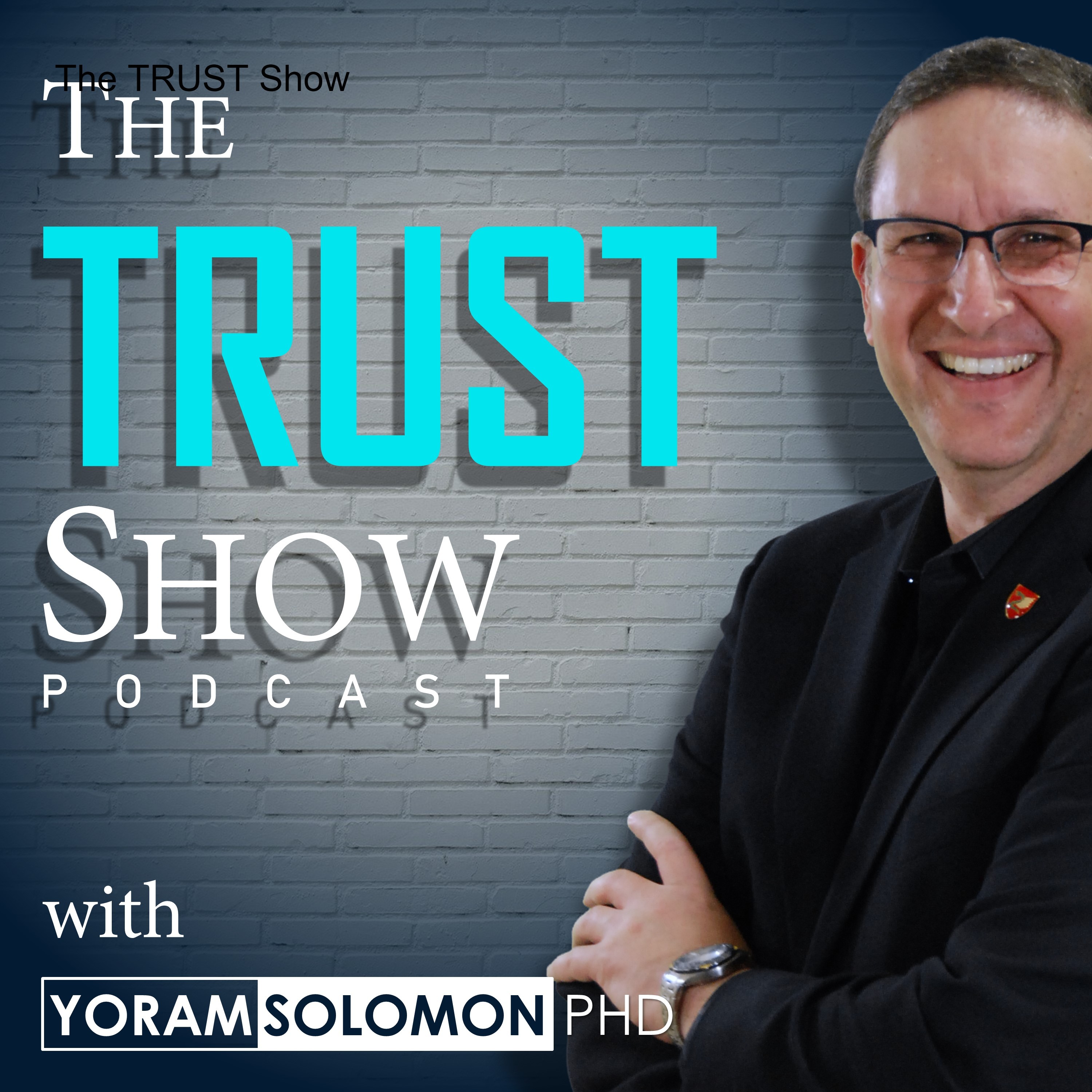
16.1K
Downloads
189
Episodes
Trust is not what you think it is. It is not absolute or universal. Trust is relative. The same behavior that would cause one person to trust you could cause another person to distrust you. The level of trust someone has in you is the product of their trustfulness (their willingness to trust other people) and your trustworthiness. There is almost (I said ALMOST) nothing you can do about the former, and everything you can do about the latter. Because of that, you must evaluate your own trustworthiness one relationship at a time, separately. Odds are, though, that the same behaviors that are holding you back from being more trusted in one relationship are holding you back from being more trusted in other relationships. Welcome to The Trust Show. I’m your host, Yoram Solomon, a top 10 trust expert and researcher, the author of the book of trust, and the creator of the Trust Habits® workshop that helps people and organizations form new habits that change old behaviors, build trust, and transform organizations. In this educational podcast, I will challenge you to think differently about trust, through the 8 laws of trust and the 6 components of trustworthiness. I will share my own stories, experiences of others, trust research, and sometimes, reflect on a news item. And through those, I will show you how to build trust, be trusted, and know who to trust. Because the answer to this question will have the biggest impact on your personal and professional, success or failure: can you be trusted?
Episodes
![S2E3: What Makes You Trusted? The NEW Trust-6 Model: Personality Compatibility [Part 2]](https://pbcdn1.podbean.com/imglogo/image-logo/11992684/TTS_New_fqieyv_300x300.jpg)
Sunday Aug 15, 2021
Sunday Aug 15, 2021
This episode is the second part of the personality compatibility component of “who you are.” The previous episode covered two dimensions of personality compatibility (area and scope). This episode covers the other three.
The third dimension of personality compatibility is alignment. At the universal/absolute level, alignment is mandatory for trust. However, the personal level, where there are multiple “good” alternatives that could be completely opposite, could entertain alignment, complementary relations, or simply different values.
The fourth dimension is importance. Alignment may not be achieved throughout every behavior or value, but the importance that the trustor gives it will dictate how much they will trust you.
The fifth dimension is controllability. If the level of alignment was not achieved, will you accept that there is something you should change, and more important—can you control it? Will you be able to change?

No comments yet. Be the first to say something!